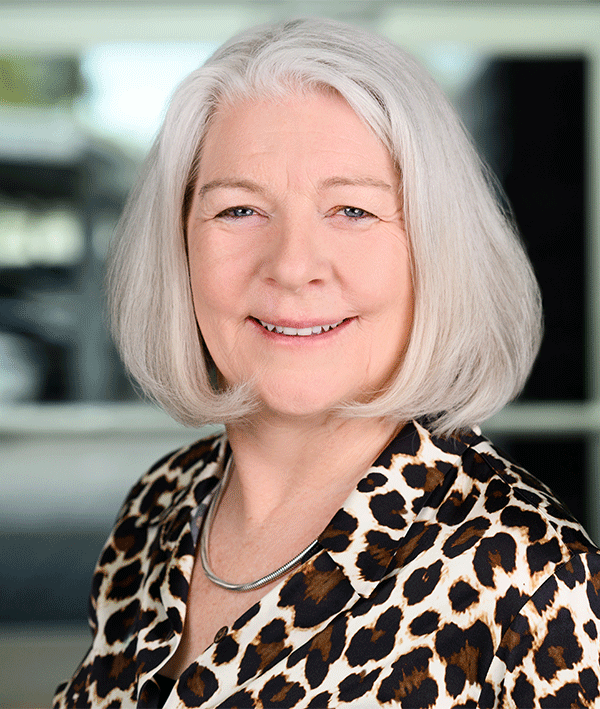By Mary O’Reilly, Ph.D.
Flinn Foundation

The Flinn Foundation Seed Grants to Promote Translational Research Program has aimed since its inception a decade ago to bridge the gap between Arizona’s academic researchers and clinicians and enable them to work together to bring clinically relevant products to market.
With more than 60 seed grants awarded by the Flinn Foundation, totaling about $7.5 million, these partnerships are developing a broad array of solutions in diagnostics, medical devices, therapeutics, precision medicine, and health-care delivery.
One of these projects is a collaboration between Arizona State University and Mayo Clinic led by researcher and Associate Professor Douglas Lake, Ph.D., who is developing a rapid test for the diagnosis of Valley fever—a respiratory disease most common in Arizona and California’s Central Valley that often goes undiagnosed. The new test could provide an answer in 10 minutes from a drop of blood.
Another is led by Julie Ledford, Ph.D., at the University of Arizona. Ledford and her team are working to develop a new treatment for COPD, a condition that affects millions of people around the world and is the third-leading cause of death.
Simply put, we are helping bright people with a great idea take their product to market to make a difference for all of us. And now it’s time for us to discover more Arizona-based research teams which are addressing significant clinical needs.
The application for the Flinn Foundation’s next seed grants cohort will open Aug. 14.

Flinn’s seed grants program is aligned with the vision of Arizona’s Bioscience Roadmap, the state’s long-term strategic plan launched by the Flinn Foundation in partnership with multiple regional stakeholders more than two decades ago, which identifies two goals as creating an entrepreneurial hub and turning research into practice.
Since the launch of the Roadmap in 2002, accomplishments have included the creation and continued expansion of Phoenix Bioscience Core, featuring all three state universities and the Translational Genomics Research Institute, two additional Phoenix bioscience hubs, the opening of three new medical schools, the expansion of major health systems, the creation of new incubators, including hubs in Flagstaff and Tucson, plus large state gains in research funding, jobs, and companies.
As the bioscience ecosystem in Arizona continues to mature, the Flinn Foundation has placed a greater emphasis within its seed grants program on finding ways to accelerate the path to commercialization or open-source applications to benefit patients.
That means new and improved health care options and treatments when you or a loved one is most in need.
In this latest cohort, the foundation awarded grants to ASU, Barrow Neurological Institute, Grand Canyon University, and UArizona that featured partnerships with Mayo Clinic, Banner University Medical Center, Banner MD Anderson Cancer Center, and two private companies.

Vice President, Bioscience Research Programs
As someone who works within the Arizona bioscience ecosystem every day, I can confidently say these are exciting times in Arizona.
Research expenditures have been increasing, in some cases dramatically, at Arizona’s universities. In 2022, Arizona received $344 million in National Institutes of Health funding, a new record in funding and national share and a 12.5% increase over the previous year, which was also a record.
In June, CBRE Group’s “U.S. Life Sciences Research Talent 2023” report showed that the Phoenix area increased its total number of life sciences researchers by 33% between 2017 and 2022—tied for third best in the nation. And the metro area had the fastest growth rate of new life sciences graduates.
At the Flinn Foundation, we look forward to seeing the outcomes of the seed grant cohorts currently underway as well as what will emerge from the next round of the program and beyond.
The Flinn Foundation has a long and storied history funding medical research in Arizona since its founding in 1965. And we are honored to be playing a role in the acceleration of this bioscience research and innovation. But we know it takes sustained commitment from countless partners throughout the state—including, of course, the researchers and clinicians who are dedicated to improving our lives and those we love.
For our next cycle of seed grants funding, the foundation will award $100,000 each to 10 selected projects. The deadline to apply is Monday, Oct. 2.
Learn more at flinn.org/seedgrants or contact me at [email protected].
Mary O’Reilly, Ph.D., has been the vice president, bioscience research programs at the Flinn Foundation since 2018. O’Reilly, who earned her doctorate in chemistry/materials science from Trinity College, University of Dublin, Ireland, and the Joint Research Center, Petten, the Netherlands, has worked as both a scientist and in industry, developing a unique expertise on research and development and product commercialization. She is a member of the Arizona Bioindustry Association board of directors, and a judge for both the Arizona Tech Council’s Governor’s Celebration of Innovation awards and Future Cities.